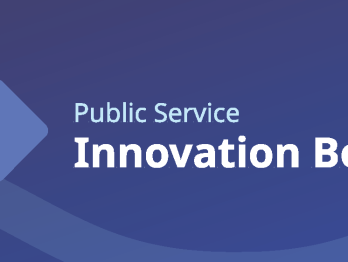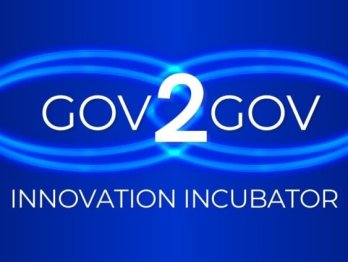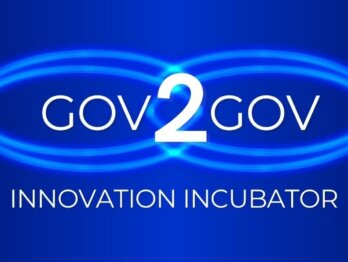Gov2Gov Challenge 4 | Spain | Preventing Bureaucratic Exclusion

This team and corresponding challenge area are participating the OECD Gov2Gov Innovation Incubator. For information on the programme, please click here.
How can we improve accessibility to public services for people in vulnerable situations and at risk of exclusion?
🇪🇸 The regional government of Andalusia in Spain is engaged in coordinating three transformation strategies with a final time horizon ending in 2030. This strategy encompasses numerous transformation projects whose success depends on accessibility and outreach to the people who most need them.
Andalusia is a large region of Spain with a diverse population of 8.58 million people living in an area of 87,597 km², and 17.4% living in rural areas. Although part of the population lives in rural areas, public services are still centred on an urban, educated, cultured individual.
The regional government of Andalusia is currently conducting a survey across the territory to collect up-to-date data on the challenges that public services face. Leveraging the 760 Guadalinfo Centres spread across Andalusia, which support people interacting with public services, the government seeks to understand the most prominent pain points affecting service users. These centres are being transformed into a new initiative called Vuela Guadalinfo under the Digital Agency of Andalusia (ADA) to include new services for the digital transformation of rural areas.
Previous research studies identified significant barriers for the general public to accessing and using public services. However, these are more pronounced for disadvantaged groups (people at risk of social exclusion, people with disabilities, elderly individuals living alone, people from rural areas, etc.). Their experience using public services presents several challenges, and digital transformation is adding new ones, deepening their vulnerable situation.
Some of these barriers impact on:
- Service awareness: the information doesn’t reach the groups targeted by the public servicies.
- Service understanding: service description and processes requirements are complex to understand.
- Service access: the digital divide makes it increasingly challenging to access digitalised public services.
One of the social groups most impacted by these barriers is older people in vulnerable situations. Andalusian society, like European society, is ageing. Life expectancy in Spain is 85.7 years for women and 79.6 years for men. In 2021, people aged 65 and over represented 17.69% of the Andalusian population. Living alone is becoming more common among all older people without a partner, pointing to the importance of addressing the issue of public services accessibility.
Challenge description
The OECD and the Regional Government of Andalusia are calling on government solution providers to join the incubator programme and support two interrelated challenges:
How can we improve accessibility to public services for people in vulnerable situations and at risk of exclusion?
Vulnerable individuals, such as older adults with limited physical or cognitive abilities who live alone, in care facilities, in rural areas, or who are socially excluded or homeless, often struggle to access public services. This is because information about these services is shared through channels they don’t participate in. The social services and benefits they’re entitled to often involve complex processes that are difficult to understand and follow. Moreover, these individuals may lack the necessary equipment and identification systems to access digital services.
How can we improve the accessibility of remote support services?
Improving accessibility to public services is a multidemensional challenge involving different support services such as the before mentioned network of Guadalinfo Centres or the Citizen’s Advice Service (known as 012). The 012 offers telephonic and online support through the web and chat applications.
People who cannot travel to in-person service offices due to mobility disabilities or living in rural areas often rely on the 012 citizen service to guide them through digital procedures. However, many individuals struggle to understand or execute the instructions due to disabilities, lack of digital skills, low cultural literacy, or language barriers.
The 012 service finds it challenging to meet the diverse needs of its users. For example, providing phone assistance to those with hearing loss, offering online services to visually impaired individuals, or aiding people with communication barriers such as speech disorders or those who do not speak Spanish.
Objectives & impact
The challenge team wants to explore creative approaches, original and experimental experiences to inspire the next steps of their strategy.
The project’s main objective is advancing the public services digital transformation, leaving no one behind to achieve a closer, more human, and more inclusive administration.
Meet the team: Challenge owners

The challenge’s main sponsor is the Department of Justice, Local Administration and Public Function, Regional Government of Andalusia. It is responsible for Public Administration and citizen services through the 012 service. The Andalusian Institute of Public Administration depends on it and, among other responsibilities, leads innovation initiatives. The Digital Agency of Andalusia provides technological support to the entire organisation.
The team also includes people from social services and employment as they are the most impacted by the scope of the chosen challenge. Other areas such as health, education, and agriculture have also been included in a support capacity due to their vast network of peripheral centres distributed throughout the territory.
The multidisciplinary team reflects the level of commitment of the regional government to a citizen-centric digital transformation.
Meet the team coordinators:
- Arturo E. Domínguez Fernández – General Secretariat for Public Administration at the Department of Justice, Local Administration and Public Function
- Mª Esperanza Dorado Pérez – Strategic Planning Office at the Department of Justice, Local Administration and Public Function

Would you like to team up?
Take a look at our participation criteria, FAQs, and become a solution provider. Deadline: 7 June 2024 | extended: 20 June 2024
- Learn more about Challenge 1 | Brazil: How can we promote broader and more equitable digital participation?
- Learn more about Challenge 2 | France: How can the design of data spaces boost contributions and participation of the general public in the common data space?
- Learn more about Challenge 3 | Italy: How can we establish a collaborative, cross-departmental and inclusive culture for AI project management?
This project and blog are funded by the European Union. Its contents are the sole responsibility of the OECD and do not necessarily reflect the views of the European Union.










